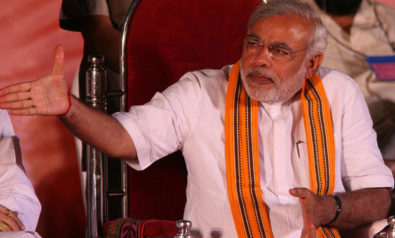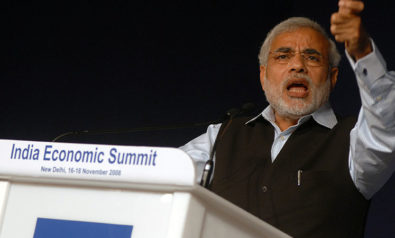by Clementine Gray and Atul Singh
Background
Historically, Gujarat has been one of the most prosperous places on the planet. Its coastal location on the west of India puts it at the centre of trading routes. Trade between India and the wider world has flowed through Gujarat for centuries. Lothal, India’s first port, is amongst the oldest in the world. Gujarat’s coastal cities, such as Bharuch and Khambhat, operated as trading centres in the Maurya and Gupta empires. It is an outward looking place and immigrants from Gujarat have settled in East Africa, Canada, the UK and the US.
Gujarat is home to some of the largest businesses in India producing agricultural products like cotton, peanuts, dates, sugar cane and milk as well as industrial products such as petrochemicals and cement. Gujarat’s GDP per capita is well above the national average. Numerous historical figures have roots in Gujarat. Gandhi was born in Porbandar and made Gujarat his base. Patel, independent India’s first Deputy Prime Minister, hailed from this state. Even Muhammad Ali Jinnah, Pakistan’s founder and first governor general, was a Gujarati although he was based in Mumbai.
Narendra Modi currently rules Gujarat. He is a controversial leader and some argue that Modi is responsible for the 2002 Gujarat riots. Yet as an administrator, he has a reputation for honesty and efficency. He models himself as an economic reformer who has created a dynamic economy and transformed Gujarat into one of India’s fastest growing states.
Why is Gujarat relevant?
Gujarat is the economic powerhouse of India. It has enjoyed an annual growth rate of 10.08% during a seven-year period beginning 2004-05. Most top-Indian powerhouses are based in the state and Gujarat is fast emerging as the car centre of India. Maruti-Suzuki, Peugeot, Ford and General Motors are looking to set-up plants here. This would create the capacity to manufacture an extra three million cars per annum; one out of three cars sold in India will be a product of Gujarat. It has a 1600km coastline with 42 ports, the highest in any Indian state. This would facilitate exports and has the potential of restoring Gujarat to its former economic glory.
Gujarat produces the highest number of entrepreneurs in India. These include Karan Bilimoria, founder and chairman of Cobra Beer, Gautam Adani, chairman of the Adani Group which is a leading trading and export company of India, Dilip Shanghyi, chairman of Sun Pharmaceuticals and Dhirubhai Ambani, the business tycoon who founded Reliance Industries.
The Gujarati Diaspora is extremely strong. Lest we forget, Gandhi was a member of the Diaspora who spent over two decades in England and South Africa. The global Gujarati community connect Gujarat and India to the rest of the world.
Gujarat goes to the polls in December. This time the elections are critical because Gujarat faces a stark choice between an efficient but polarizing local leader and an effete but vicious national dynasty. The choice Gujarat makes will influence other states in India; as goes Gujarat so goes the Indian nation.
For more than 10 years, Fair Observer has been free, fair and independent. No billionaire owns us, no advertisers control us. We are a reader-supported nonprofit. Unlike many other publications, we keep our content free for readers regardless of where they live or whether they can afford to pay. We have no paywalls and no ads.
In the post-truth era of fake news, echo chambers and filter bubbles, we publish a plurality of perspectives from around the world. Anyone can publish with us, but everyone goes through a rigorous editorial process. So, you get fact-checked, well-reasoned content instead of noise.
We publish 2,500+ voices from 90+ countries. We also conduct education and training programs on subjects ranging from digital media and journalism to writing and critical thinking. This doesn’t come cheap. Servers, editors, trainers and web developers cost money.
Please consider supporting us on a regular basis as a recurring donor or a sustaining member.
Support Fair Observer
We rely on your support for our independence, diversity and quality.
Will you support FO’s journalism?
We rely on your support for our independence, diversity and quality.









